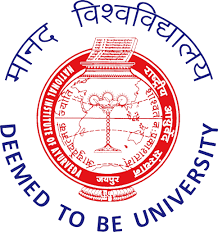Graduates of this program gain expertise in applying Ayurvedic principles to promote holistic health through diet and nutrition. They can work as Ayurvedic nutritionists, diet consultants, wellness coaches, or educators. The future scope includes opportunities in wellness centers, Ayurvedic hospital
Future Scope & Benefits for M.Sc. in Ayurveda Diet and Nutrition Course
Ayurveda, one of the world's oldest holistic healing systems, has gained widespread recognition for its natural and personalized approach to health and wellness. Within the realm of Ayurveda, the field of diet and nutrition plays a crucial role in promoting well-being. Pursuing a Master of Science (M.Sc.) in Ayurveda Diet and Nutrition, also known as Poshanhara, offers a unique and promising career path that combines ancient wisdom with modern nutritional science. In this article, we will explore the future scope and benefits of this specialized field.
Future Scope of an M.Sc. in Ayurveda Diet and Nutrition
The future scope of an M.Sc. in Ayurveda Diet and Nutrition is promising as holistic health and wellness gain prominence. Graduates can anticipate opportunities as Ayurvedic dietitians, wellness consultants, or nutritionists. Their expertise in combining Ayurvedic principles with modern nutrition science will be in high demand for promoting holistic well-being, ensuring a dynamic career landscape in Ayurvedic diet and nutrition.
-
Clinical Nutritionist: Graduates can work as clinical nutritionists, providing personalized dietary guidance to individuals based on Ayurvedic principles. They help clients manage health conditions, achieve optimal nutrition, and maintain overall well-being.
-
Ayurvedic Diet Consultant: Ayurvedic diet consultants specialize in creating dietary plans that align with an individual's Ayurvedic constitution (Dosha). They offer dietary recommendations to address specific health issues and promote balance and harmony within the body.
-
Health and Wellness Coach: As health and wellness coaches, graduates can guide clients on their journey to better health. They provide holistic support, including dietary advice, lifestyle modifications, and stress management techniques, all rooted in Ayurvedic principles.
-
Corporate Wellness Programs: Many companies are investing in employee wellness programs. Ayurveda diet and nutrition experts can collaborate with organizations to design and implement wellness initiatives that improve employee health and productivity.
-
Ayurvedic Product Development: Graduates may work with Ayurvedic product companies to develop and market dietary supplements, herbal formulations, and Ayurvedic food products that promote well-being and balance.
-
Teaching and Education: Opportunities exist in educational institutions and Ayurvedic colleges for graduates to teach courses related to Ayurveda diet and nutrition, passing on their knowledge to the next generation of practitioners.
Benefits of Pursuing an M.Sc. in Ayurveda Diet and Nutrition
Pursuing an M.Sc. in Ayurveda Diet and Nutrition offers several benefits. It equips individuals with specialized knowledge in Ayurvedic dietary principles and modern nutrition science. Graduates can work as Ayurvedic dietitians, nutrition consultants, or wellness coaches, providing holistic health solutions. This program fosters a deep understanding of the mind-body connection, offering rewarding and impactful career opportunities in holistic wellness.
-
Holistic Approach: Ayurveda emphasizes a holistic approach to health, considering the mind, body, and spirit. Graduates are trained to address the root causes of health issues rather than just treating symptoms.
-
Personalization: Ayurvedic nutrition is highly personalized, taking into account an individual's unique constitution and imbalances. This personalized approach leads to more effective and sustainable results.
-
Preventive Healthcare: Ayurveda places a strong emphasis on preventive healthcare. Graduates in this field empower individuals to make proactive choices that prevent disease and promote long-term well-being.
-
Cultural and Traditional Preservation: Pursuing a career in Ayurveda diet and nutrition allows individuals to contribute to the preservation and promotion of India's rich cultural and traditional knowledge.
-
Growing Global Interest: Ayurveda has gained popularity worldwide, creating a global demand for qualified Ayurveda diet and nutrition professionals.
-
Interdisciplinary Knowledge: Graduates acquire a unique blend of Ayurvedic wisdom and modern nutritional science, making them versatile and well-equipped to address a wide range of health issues.
 2 Years
2 Years
 Post Graduate
Post Graduate
 Science
Science
 Full Time
Full Time



 back
back

